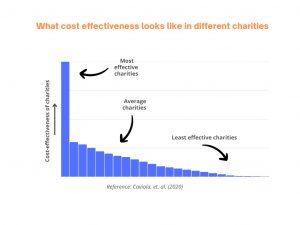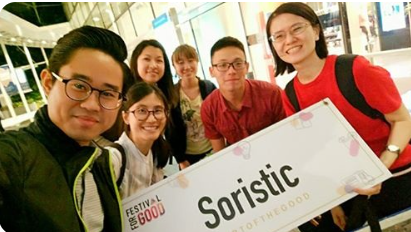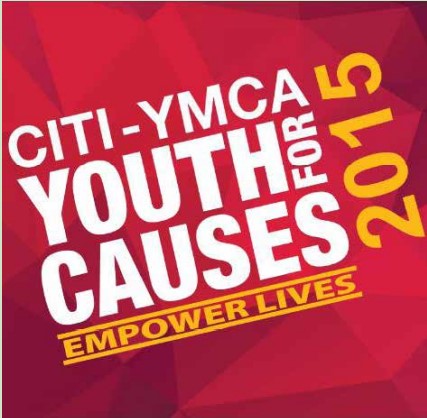Many people feel a moral obligation to help others and make a positive difference in the world. Their giving is motivated by a myriad of factors including altruism, family and personal values; religion; personal affiliation as well as prestige. Giving is often perceived as a rewarding and fulfilling experience to make a positive impact in the world. However few donors do much research or due diligence before donating. Often the choice of charities is based on word of mouth, familiarity and convenience. Do we need to be more discerning in giving? Or does giving effectively really matter?
In a recent study that examined giving for global poverty, it was found that many donors believed the most effective charity is just 1.5 times more effective than an average charity. When asked to donate, the majority would spit their donations across the charities possibly driven by their desire for fairness. Only 38% would give all the amount of money to the most effective charity.
The study found that donors substantially underestimated the differences in cost effectiveness between the most effective and average charities as compared to experts. The latter estimated the most effective charity to be 100 times more effective than an average charity. There is an astronomical difference in the lives that could be saved, and the impact made for the same donation dollar. Furthermore, experts assessed that below average charities accomplish little impact if any at all.

These numbers presented are staggering. It also showed the significant misconception that donors had in assessing the most effective and average charities that consequently impacted their giving behaviour. When many are made aware of this astronomical difference in effectiveness, they do better allocation of their donations by consciously choosing to donate much more to the most effective charities, with the percentage of donors allocating the entire amount of their donation to them rising from 38% to 56%. There will always be a sizable percentage of donors that have an inclination towards splitting their donations regardless of effectiveness.
Essentially, the study highlighted a few key points. First, effectiveness varies greatly among charities. Second, mainstream donors may not be adequately equipped with sufficient knowledge on the effectiveness of charities. Third, equipping donors with the correct information could lead to better allocation of donations that can result in much greater impact to society.
With the current huge sustainable development gaps in the world, we have a responsibility to ensure that the limited resources available can be used to address urgent needs in the world to create lasting and meaningful social change. We need to ensure that those changemakers that are most effective are given the resources to create sustainable solutions to the current social and environmental challenges.
Knowledge matters and equipping ourselves with that knowledge can enable us to make a bigger positive difference to the world. For this purpose, Soristic Impact Collective has designed a charity assessment tool, the Charity GuidePoint (https://charityguidepoint.sg/), that collates and analyses data from over 600 charities in Singapore. Currently financial health assessment is available and new categories of data assessment will be added over time to increase its comprehensiveness. With this tool, we hope to contribute to donors giving more effectively and achieving a bigger impact.
References:
Caviola, et. al. (2020). Donors vastly underestimate differences in charities’ effectiveness. Judgment and Decision Making. 15. 509-516.
Lam & Tan. (2018). Philanthropic Foundations in Asia.
Starr, K. (2023). Don’t Feed the Zombies. Stanford Social Innovation Review.




